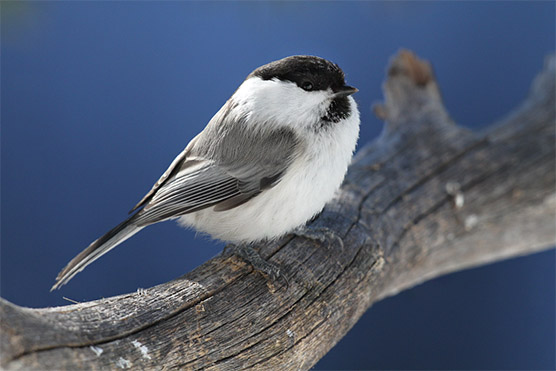Resident bird species decrease as loggings increase
The population changes of resident boreal forest birds, i.e. bird species overwintering in Finland, were compared between two periods differing in logging volume. According to this study, the significance of the extent of the protected area network to resident bird species increases as logging intensifies.
The population changes of 15 resident boreal forest bird species were compared yearly in periods of relatively stable (2006–2011) and increasing logging volume (2012–2018). The study examined the changes in the densities of resident bird species populations in protected areas and unprotected areas between these two time periods.
The objective was to determine how loggings affect the populations of resident bird species and whether the increased loggings also have an effect on the populations of resident bird species in protected areas. The study included gallinaceous species, woodpeckers, and passerines, such as tits.
According to the study, the extent of the protected area network and the intensity of the loggings in unprotected areas have a crucial role in preserving resident bird species. ”If the proportion of protected forest in the landscape is small, the intensive loggings in unprotected commercial forests have a detrimental effect also on the bird populations of protected forests,” says leading researcher Raimo Virkkala from the Finnish Environment Institute SYKE.

The study discovered that the numbers of the greatly declined willow tit (Poecile montanus) fell in southern Finland both in protected and unprotected areas. In northern Finland, however, its population remained stable in protected areas, even if it declined outside them. © Photo: Juha Laaksonen
IBC-Carbon took part in the co-operational study, which was carried out by the researchers at the Finnish Environment Institute SYKE, the Finnish Museum of Natural History, and Metsähallitus, National Parks Finland.
More on the topic
For further information, please contact
- Leading Researcher Raimo Virkkala, Finnish Environment Institute SYKE, tel. +358 295 251 747, firstname.lastname@ymparisto.fi